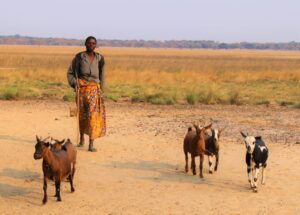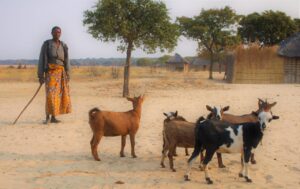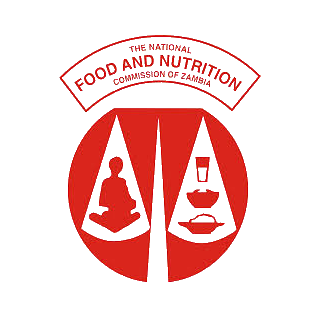By Lwandamo Katondo
The Scaling Up Nutrition (SUN) project has been implementing the small livestock pass-on program in order to enhance dietary diversity and fight against malnutrition among the target households. The intervention has continued to bear fruits as households are engaged in diversified food production and consumption. In Kalabo district of Western province, the impact of goat distribution, pass-on and rearing is stimulating household food security and diversity.
“I’m grateful to SUN for empowering me with goats through the small livestock pass-on program. The program has improved our nutrition status at household level. Our rearing of goats has been the best practice ever. Arising from the proceeds of the empowerment, I have now ventured into crop production,” are words of gratitude delivered by one of the beneficiaries.
Namatama Ngai, aged 48, of Katete Village, Mbunde area, in Ndoka ward is a mother of five children among them a 1 year 8 months baby boy. Ms Ngai is one of the early small livestock pass-on beneficiaries. She had received a set of goats. She is happy to share her success story after having had increased production and productivity, increased farmer income after sells and has now ventured into crop production.
“I look forward to the next planting season. I’m proud of this one hectare field where I have successfully intercropped cassava, millet and groundnuts in order to address household food shortages we have been facing during the past years. These are drought resistant crops; they are rain fed and do not require irrigation. This year I had a good harvest of millet and groundnuts. At least after the harvest we have had a dietary diversity, and enough to feed my children. The millet produce has provided us with carbohydrates for energy while the groundnuts provided us with proteins for body building.”
Ms Ngai recounts how the goats she has been rearing have managed to help her set up a crop field.
“That was around the year 2015 when I was empowered with the two goats. Over time, the goats increased in number. I can proudly say that have had increased production and productivity. So as a family, we have been selling some of the goats each time they multiplied in numbers due to their fast breeding rate. What quickly came to my mind was food diversification. The income from the sale of goats is what I used to buy inputs and invest in this crop field.
“I have also been able to successfully pass-on the offspring to another target household beneficiary as designed by the program. Through the income from the sale of goats, I have been able to provide food, school requirements for the children and other basic needs for my family including a semi-permanent house which has been built from the proceeds.
Ms Ngai has observed that the small livestock pass-on program is one of the best practices in addressing malnutrition, particularly stunting, among target households.
“The goats have continued to provide me and the children with a reliable access to milk and meat products which are a cheap source of proteins and essential micro nutrients while the dung serves as organic manure for conservation farming. The advantages of rearing goats are that they have a fast and high breeding rate, easy to look after, not prone to diseases and are resilient to climate change in cases of poor pastures unlike other livestock such as cattle which require a high level of management.
Ms Ngai has a word of encouragement to other beneficiaries.
“Goats are viable due to their higher breeding rate. Just take good care of them. This empowerment is an investment which has proven to improve the livelihoods of target household beneficiaries. I therefore wish to implore other beneficiaries emulate me and pass-on some their goats to fellow mothers in order to address child stunting.”
Following a successful undertaking, Ms Ngai has shared her vision in which she will have to continue rearing goats while also engaging in the cultivation of staple food crops such as cassava, millet and maize. She says the combination of such sustainable ventures will guarantee her household food secure while generating the much needed revenue from the sale of her produce. She says the revenue would help her buy other foodstuffs the household may require as well as provide for other basic needs.



